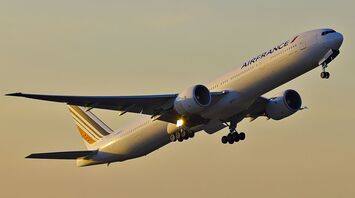How Will the 2024 Olympic Games Operationally Impact Paris' Major Airports?

The upcoming 2024 Summer Olympics, set to take place from July 26 to August 11, and the Paralympic Games from August 28 to September 8, will significantly impact Paris' major airports. This comprehensive overview provides insight into the operational changes and challenges faced by the city's airports during this global event.
Increased Demand and Capacity Adjustments
The influx of millions of spectators and thousands of athletes will push French transport infrastructure to its limits, particularly at airports. Groupe Aéroports de Paris (ADP), managing the capital city's airports, anticipates handling 115,000 pieces of luggage, including 17,000 oversized items, primarily sports equipment. This is a significant increase compared to the typical annual handling of 1,000 oversized items.
Preparations at Paris Charles de Gaulle (CDG) include improved baggage handling systems capable of processing 1,800 bags per hour for departures and 6,000 bags for arrivals in Terminals 2B and 2D. Additionally, the extension of Paris Metro Line 14 to Paris Orly Airport, scheduled to open on June 23, will facilitate smoother transfers between the airport and the city.
No-Fly Zone During the Opening Ceremony
A no-fly zone will be enforced during the Olympics' opening ceremony on July 26 from 16:30 to 22:00 UTC. This zone, spanning an area comparable to the size of Belgium (28,922 square miles), includes Paris Charles de Gaulle, Paris Orly, and Paris Beauvais airports. The restriction is necessary for health and safety reasons, and it will result in significant flight cancellations and rescheduling. Airlines like easyJet have already canceled nearly 100 flights, affecting 18,000 passengers, while Ryanair and Wizz Air have also reported disruptions.
Airlines' Response and Adjustments
Air France has increased capacity by 9% on long-haul services this summer to accommodate the expected surge in demand. The airline has added or resumed several routes, including daily services to Minneapolis and Phoenix, and extended seasonal services to Raleigh-Durham and Abu Dhabi. Air France will also offer additional frequencies on routes to Africa and the Indian Ocean, and expand its service to Tokyo. For the Olympics, Air France is providing a dedicated check-in lobby for its La Première (first class) passengers.
Qantas is launching a new service from Perth to Paris starting July 12, initially running four times a week during the Olympics before reducing to thrice weekly. This new route will provide a direct link to Paris, catering to increased demand.
Delta Air Lines has expanded its service from Cincinnati to Paris, increasing from thrice weekly to daily flights. The airline has also painted an Olympics-themed livery on an Airbus A350 aircraft and is responsible for transporting Team USA athletes to the Games.
Iberia has introduced an Airbus A330-200 for its Madrid to Paris Orly route on select dates in July to meet heightened demand.
Avianca will resume flights from Bogotá to Paris starting July 3, increasing to five weekly flights from July 15.
Potential Threats to Smooth Operations
- Heightened Demand and Queues: August 12-14 is expected to be particularly busy with full departing flights. Groupe ADP has advised passengers to arrive earlier than usual to avoid missing flights.
- Strikes: Recent ATC strikes in France have caused widespread disruptions. Continued labor disputes could lead to further strikes, potentially affecting flights within France and overflights. Agreements to improve working conditions and salaries have been reached with some unions, but others remain dissatisfied, increasing the risk of additional strike action during the Olympics.
The 2024 Olympics presents both an opportunity and a challenge for Paris' airports. While showcasing their capabilities, they must also navigate increased demand, operational constraints, and potential disruptions to ensure a smooth experience for all travelers.



















